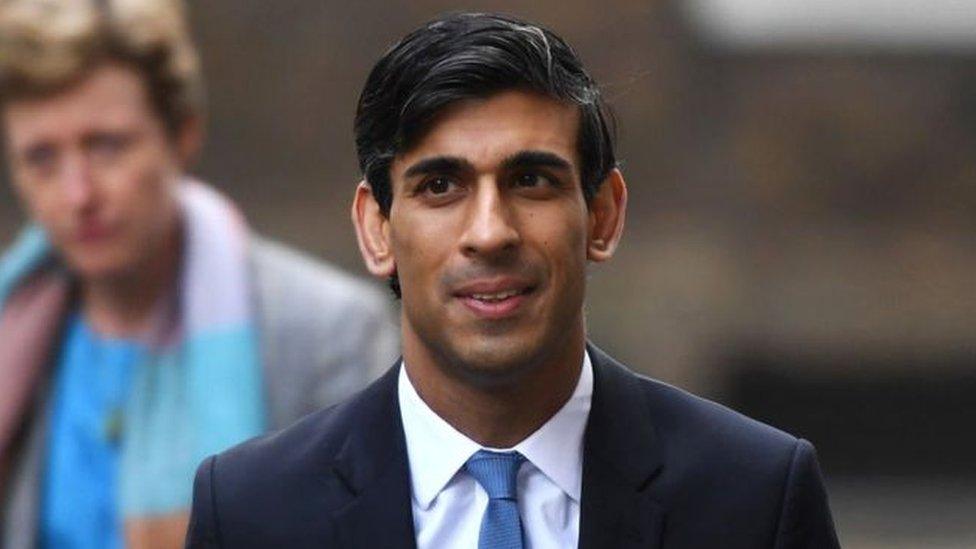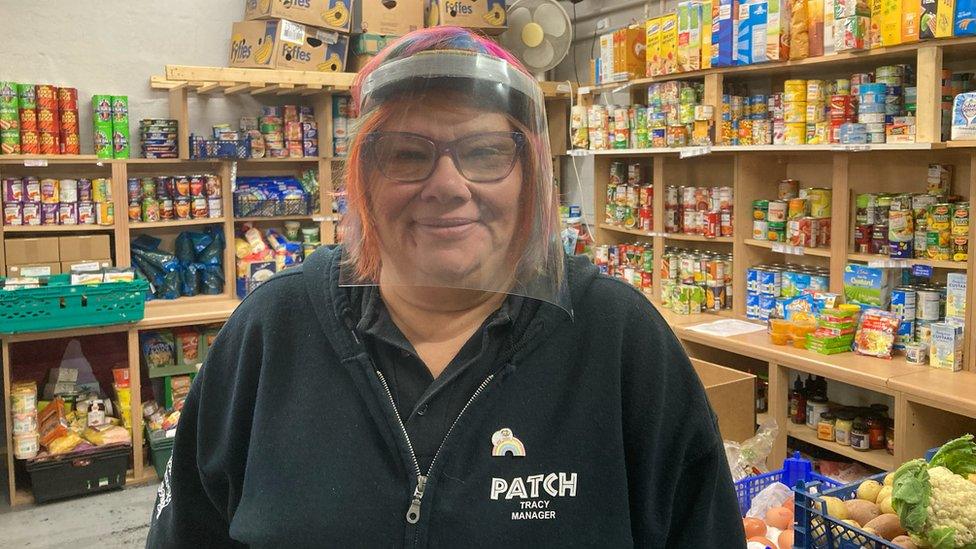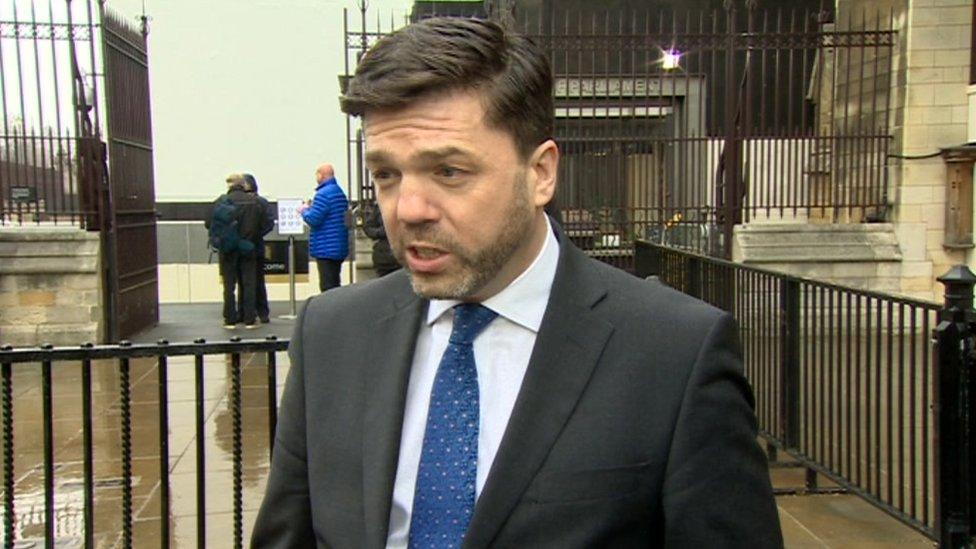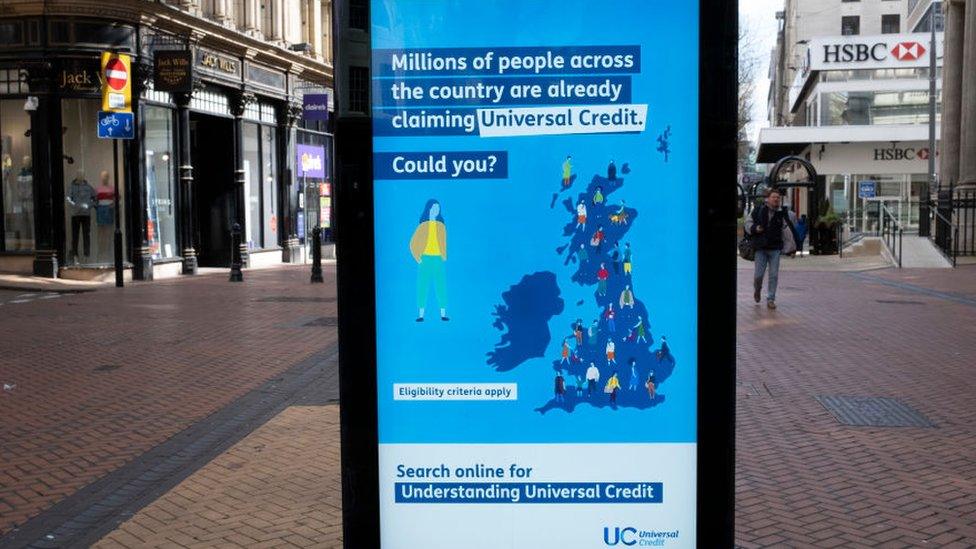Spending Review: Covid Universal Credit top-up 'should be extended'
- Published
Spending Review: End of £20 Universal Credit top-up 'would be devastating'
"At the moment we're not able to budget for Christmas or anything because we had to buy more all year round."
Kirsty Clayton, 24, from Milford Haven, is one of the 112,700 people in Wales out of work and on Universal Credit - almost double the 57,400 last October.
Like other claimants, mother-of-three Ms Clayton has received a £20-a-week top up during the pandemic.
But that is due to end in March and there are calls for it to be extended in the chancellor's Spending Review.
Neither Ms Clayton nor her partner are currently employed, and they are struggling to bring up three children aged two, one and three months.
She said she has had to buy three sizes of nappies and because she has had to buy more from local shops since the start of the pandemic, they are £4 more expensive per pack than supermarkets' own-brand versions.
Ms Clayton has been helped with parcels from Patch, a Pembrokeshire charity which donates food, gifts and toys at Christmas, and said she would "struggle quite a bit" if the extra £20 a week comes to an end as planned in March.
She explained: "It's taken its toll on me. I've been depressed as well - post-natal depression - it's been really hard."

Chancellor Rishi Sunak is under pressure to extend the Universal Credit £20 top-up beyond March
There are calls, including from within his own party, for Chancellor Rishi Sunak to extend the payment beyond March when he announces his annual Spending Review later.
Like other charities in Wales, Patch has experienced a large increase in the numbers of people it is helping.
The charity, which gives food parcels with five days' worth of food to those in need, has handed out 70% more meals this year than it did last year.
Between January and the end of September, it provided 78,435 meals compared with 46,080 meals during the same period in 2019.

Tracy Olin, who co-ordinates a food bank in Pembrokeshire, says the stories she is hearing are "completely different from anything" seen in her 20 years
"Even though I have been doing this for more than 20 years, I am always shocked by the different needs, and this year, oh my goodness, I have never seen anything like it," said Patch co-ordinator Tracy Olin.
"The stories are completely different from anything I have seen before."
Ms Olin spoke about a self-employed couple whose incomes had both stopped because of Covid and had been forced to use the foodbank.
"People have got used to that £20 and taking it away would be huge," said Ms Olin.
'Going to be devastating'
"These are the most vulnerable people. If I had my wages cut by £20 a week I would really notice a difference, but these people have so little income already, £20 a week is going to be devastating."
Ms Clayton's Conservative MP, former Welsh Secretary Stephen Crabb, said the payment had been particularly important in Wales because wages are lower than the rest of the UK.

Stephen Crabb believes the Treasury "can afford" to extend the payment beyond March
"Increasing the allowance by £20 has been so important to so many families, not just the unemployed who've lost their jobs but people who are working irregular hours," he said.
"I think the Treasury can afford to keep this uplift in payments - it will cost around £7bn next year.
"I think the idea that we would now reverse the £20 increase to Universal Credit next March, at a time when many families would be facing an increase in unemployment, for me that is just out of the question."
- Published13 May 2024

- Published24 November 2020
